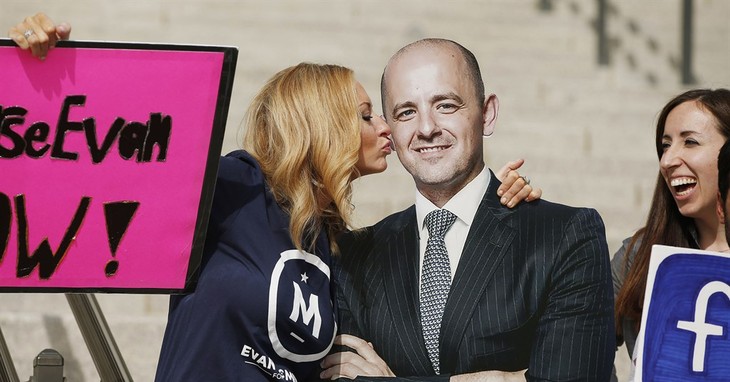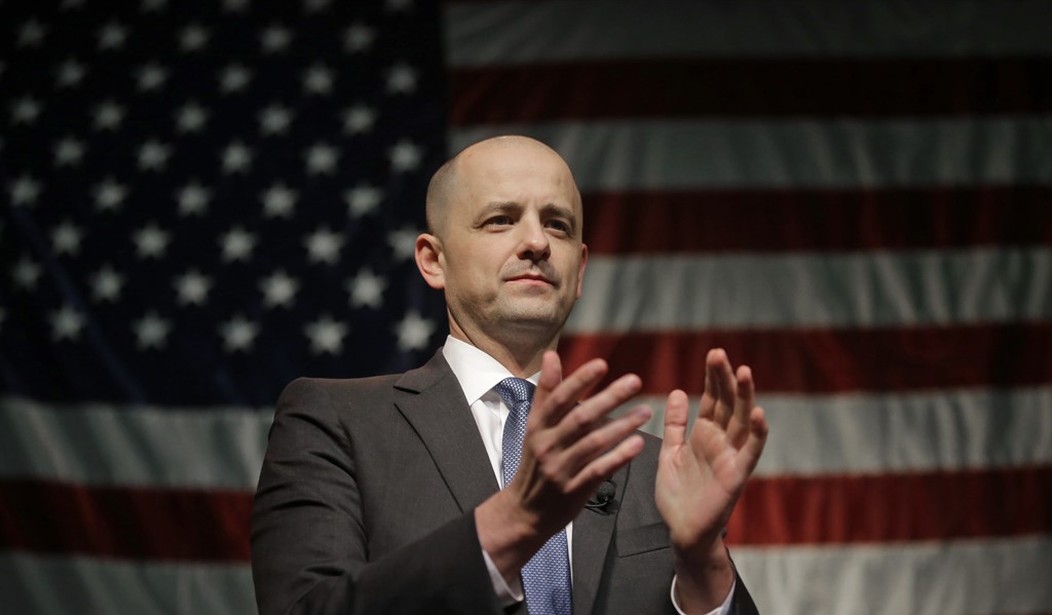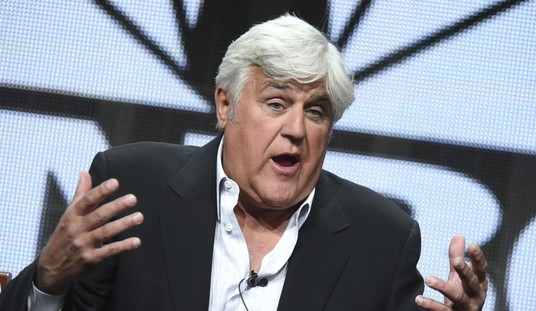Former 2016 independent presidential candidate Evan McMullin has recently been making a big deal about his CIA background in his campaign to take out incumbent conservative Senator Mike Lee. His claims had previously come under some scrutiny from both Dan McLaughlin at NRO and Quin Hillyer at the Washington Examiner, but there’s a specific aspect of McMullin’s story that, in the wake of “Russiagate” exploding after McMullin ran for President (extremely unsuccessfully), especially calls into question his CIA bona fides. With Election Day approaching, it’s time to address it head-on.
While no one is questioning that McMullin served, and everyone who steps up to serve their country deserves some measure of appreciation, no matter how much or how little they did – there’s one huge tell in his post-2016 public statements and activities that McMullin wasn’t exactly Maya from Zero Dark Thirty, or even her less competent and committed colleagues; nor was he Sandy Grimes or Jeanne Vertfeuille, real CIA agents who caught one of the most notorious traitors in history (Aldrich Ames). In fact, unless McMullin has literally just lost his mind since he left the agency, he was probably a low-level paper shuffler that didn’t do much for the CIA at all, and who is now exploiting its name and prestige to argue he has the relevant experience to be a US Senator when he is more in the category of over-ambitious DC grifter.
After all, supposed CIA intel guru McMullin bought into New York Magazine’s Jonathan Chait’s “Trump is a Russian Asset” theory hook, line, and sinker.
In 2018, in fact, McMullin actually shared a Chait article alleging Trump was a Russian asset, calling it “the best summary and assessment” and saying “some things simply are what they seem.” He called it “a substantial, though still measured, piece.”
That was, shall we say, not the read of most people.

For example, even NPR dismissed the “Russian asset” theory as “frankly speculative” and made the case instead that Trump’s ego drove him to focus on his election victories and praise Putin so that his 2016 victory didn’t seem tainted.
David Leonhardt of the New York Times called the “Trump Russian asset” theory “the flimsiest” of all the Trump-Russia theories, and “encouraged” people “to ignore this theory,” “unless real evidence emerges” (to date, it has not).
More notably, it wasn’t the read of really anyone with actual intelligence or military backgrounds. For example, notorious anti-Trump professor and pundit Tom Nichols, who taught at the *U.S. Naval War College*, said at the time that the Chait “Russian asset” theory was not proven and that the charge that Putin was Trump’s “handler” was “over the top.” Nichols also noted in his piece dissecting the Chait theory that it gives too much credit to Russia and implausibly claims that Putin “installed” Trump in office through “masterful statecraft.”
“This is not an episode of The Americans,” as Nichols put it.
The magazine Foreign Policy argued instead that Trump’s behavior was best explained by a desire to emulate Putin, rather than him being any kind of traitor or “asset.” Their point was that Trump sees Putin as the kind of leader he would like to be — a sort of kindred spirit who, like Trump, does whatever he wants regardless of any moral or legal constraints.
This tallies with the read of a Clinton-era ambassador to Russia who said there is “something about Putin” and his “macho image” that appeals to Trump, and who also pegs Trump’s behavior with regard to Putin to Trump’s ego and self-obsession.
Even Chief Trump hater and impeachment star witness Colonel Alexander Vindman has refuted the “Russian asset” theory. In an interview with The Atlantic’s Jeffrey Goldberg, he indicated that Trump’s admiration for Putin was so strong that the Russians didn’t need to recruit him or blackmail him.
Yet somehow, noted CIA analyst Evan McMullin thought it was totally true.
In 2018, McMullin said the Trump-Putin “relationship” “bears the hallmarks of an intel officer’s relationship with an asset.” He also posted a video of Trump and purported to explain how Trump was recruited and locked down as an asset.
“While in Russia you accept enticements you ought not and learn it was all for a purpose,” McMullin claimed in a tweet. “You feel angry and trapped at first until money begins to flow and opportunity seems greater than risk. Then with every compromising step, cords tighten around you until your will is theirs.”
Then, in 2019, he shared on Twitter a Max Boot op-ed claiming that Trump was either a Russian agent or “doing a pretty good imitation of one.” In 2020, McMullin was still fully bought in on the “Trump is a Russian asset” theory. He claimed that there was “little other explanation” for Trump’s “subservience to Putin” than that Trump was a Russian agent or asset.
This is, to be blunt, delusional. There is just no way that someone this nutty can have been of any significant value in the US intelligence community – either that or he has completely lost his mind since leaving the CIA.
In either instance, that makes him unqualified to serve in the Senate, and it will be interesting to see if Mike Lee presses him on this in their upcoming debates.














Join the conversation as a VIP Member